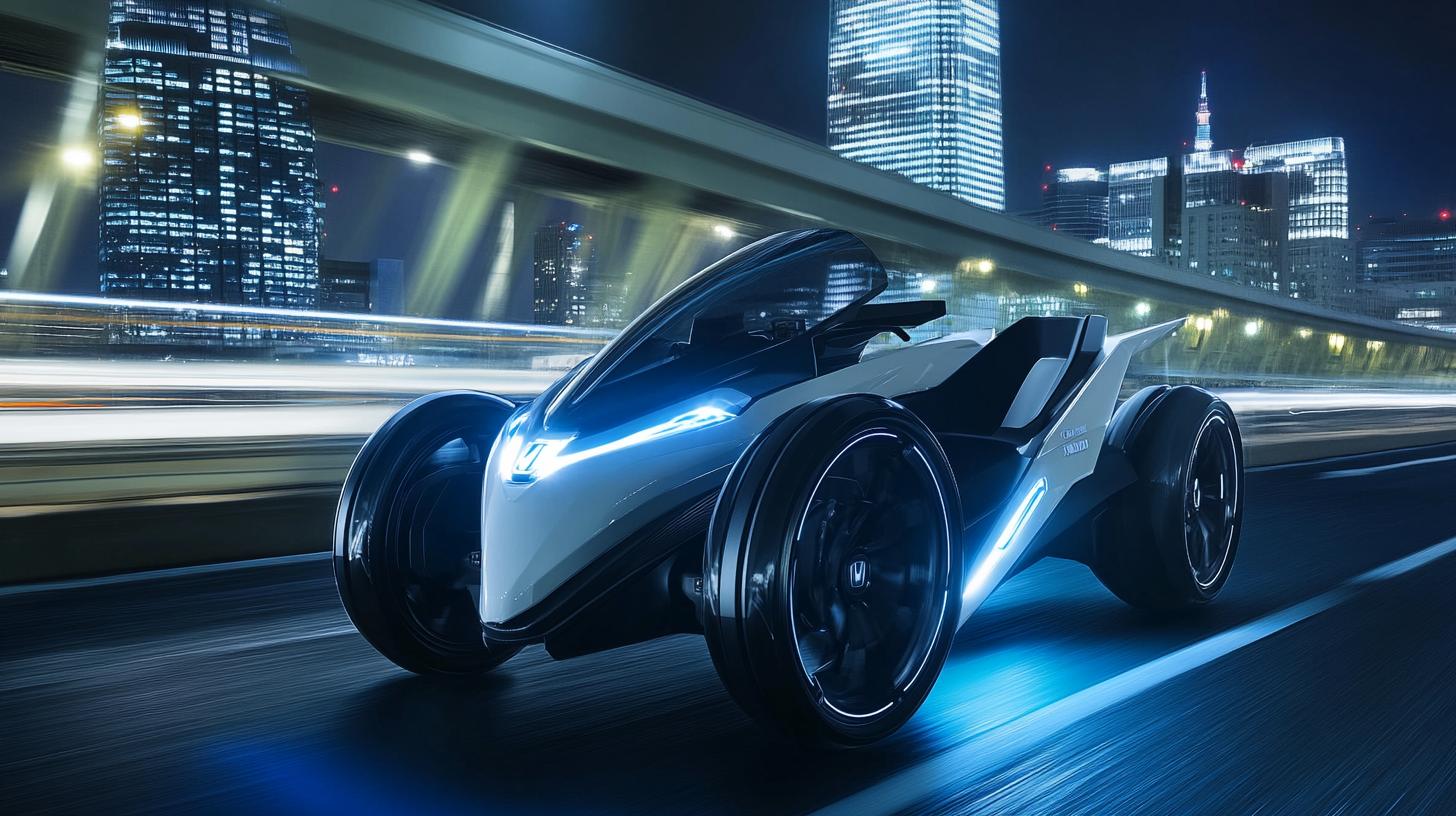Revolutionary battery technology is on the horizon, and Honda is at the helm. Solid-state batteries have been a hot topic, touted as potential game-changers for electric vehicles (EVs). Although they have long been seen as almost within reach, major industry players now appear closer than ever to making them a reality.
Recently, tech giants have shown a keen interest, especially after Samsung revealed an ambitious solid-state battery promising an impressive 600-mile range with a super-fast nine-minute charge time. This heightened interest is rapidly pushing the envelope of what EV technology can achieve.
Enter Honda, a leader in automotive innovation. The company has announced the introduction of a new production facility for solid-state batteries in Japan. While the facility is initially focused on research and development, this marks a significant step forward in the advancement of solid-state battery technology.
Honda’s commitment to this initiative signals a wider industry shift. Known for its innovative approach to EV technology, Honda is already making significant strides with its versatile Mobile Power Pack e:, which powers everything from electric scooters to tourist boats. If Honda incorporates solid-state batteries into their products, especially motorcycles, the landscape of electric mobility could change dramatically.
Could this see a debut in their next EV motorcycle concepts unveiled at EICMA 2024? Only time will tell, but it’s clear that with faster charge times and extended ranges, solid-state batteries could soon make electric vehicles more accessible and appealing to a broader audience. As Honda invests in this cutting-edge technology, the future of EVs is brighter than ever.
Solid-State Batteries: The Next Frontier in Technology and Human Advancement
The Rise of Solid-State Batteries: Beyond Electric Vehicles
While the buzz around solid-state batteries predominantly centers on their application in electric vehicles (EVs), their potential extends far beyond merely revolutionizing transportation. What lies beneath the surface of this technology could reshape not just mobility, but various sectors impacting human development and technological progress.
Unpacking the Implications: Why is solid-state technology so revolutionary? At its core, this technology replaces the liquid or gel electrolyte found in conventional lithium-ion batteries with a solid electrolyte. This offers intrinsic benefits like higher energy density, improved safety, greater longevity, and faster charging times.
Wider Influence on Technology and Society
Imagine smartphones, laptops, and wearable devices that charge in minutes and last days, all based on solid-state battery technology. Attaining these advancements would lead to a significant reduction in electronic waste, a major environmental concern.
Energy Storage: Beyond consumer electronics, solid-state batteries can play a significant role in renewable energy storage. With their higher energy capacity and lifespan, they could store and release solar and wind energy more efficiently, aiding the global shift towards sustainable energy sources.
Controversies and Challenges: The Double-Edged Sword
While the advantages are impressive, the road to widespread implementation of solid-state technology is not without bumps. What concerns need addressing?
Production Costs: Manufacturing solid-state batteries is still an expensive process, largely due to the complex materials and technology required. This may result in higher initial costs for consumers, posing a barrier to immediate large-scale adoption.
Scalability: Bringing this tech from the lab to the marketplace involves overcoming challenges in scalability. Consistent production that maintains quality at high volumes is still under research and development.
Material Availability: Some materials required for solid-state batteries, like lithium, are already subject to supply bottlenecks. Ensuring a steady supply chain will be crucial as demand increases.
In Pursuit of Answers: What’s Being Done?
How is industry moving past these hurdles? Industry leaders, including Honda, are investing significantly in research and innovation to make solid-state batteries a viable and cost-effective solution. Initiatives like Honda’s new production facility in Japan signal shifts towards greater R&D in this domain.
Collaborations among tech startups, automotive companies, and research institutions worldwide are also paving the way, seeking breakthroughs in material science and engineering.
The Controversy of Change
Interestingly, the rapid stride towards new battery technology sparks both excitement and trepidation among existing stakeholders in traditional battery manufacturing and fossil fuel industries. What’s at stake?
As solid-state batteries unlock new potentials, traditional sectors may face obsolescence, unless they adapt quickly to shifting paradigms. This technological evolution will necessitate a recalibration of skills, investments, and operations at several levels.
The Future Beckons
While much work remains in making solid-state batteries a staple across industries, the narrative of progress cannot be overlooked. The synergy between technological advancements and human adaptability holds immense promise for a sustainable and efficient future.
For further exploration on technological advancements and solid-state batteries, visit TechCrunch.
Indeed, the unfolding journey of solid-state batteries resembles other tech revolutions – unfolding over time, marching us toward a future fueled by innovation and sustainability. How will we, as a global society, rise to meet that future? Only time will tell.







